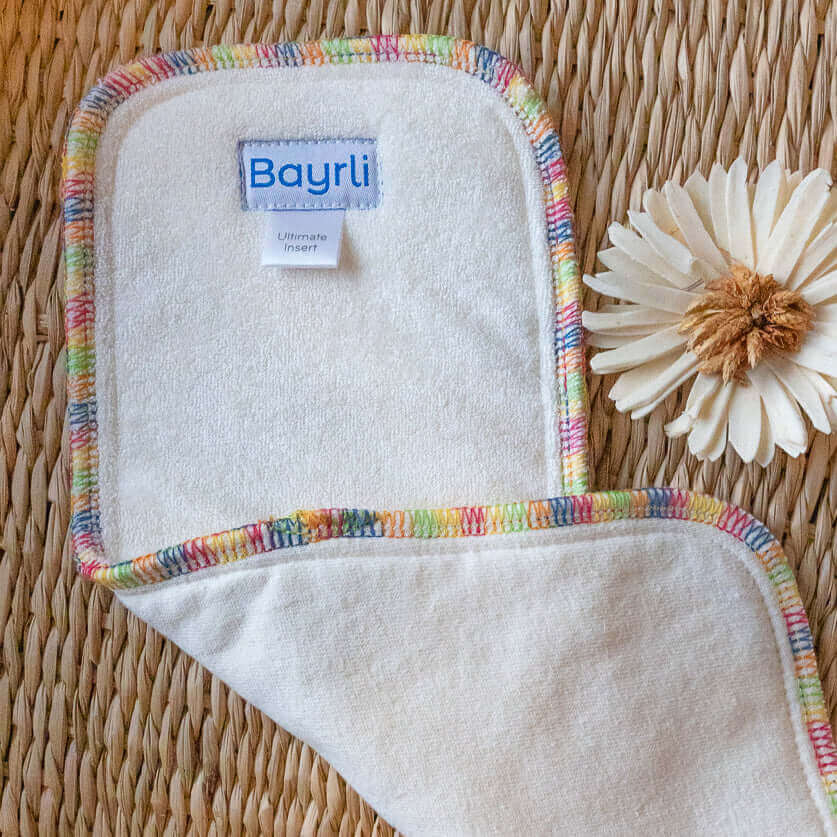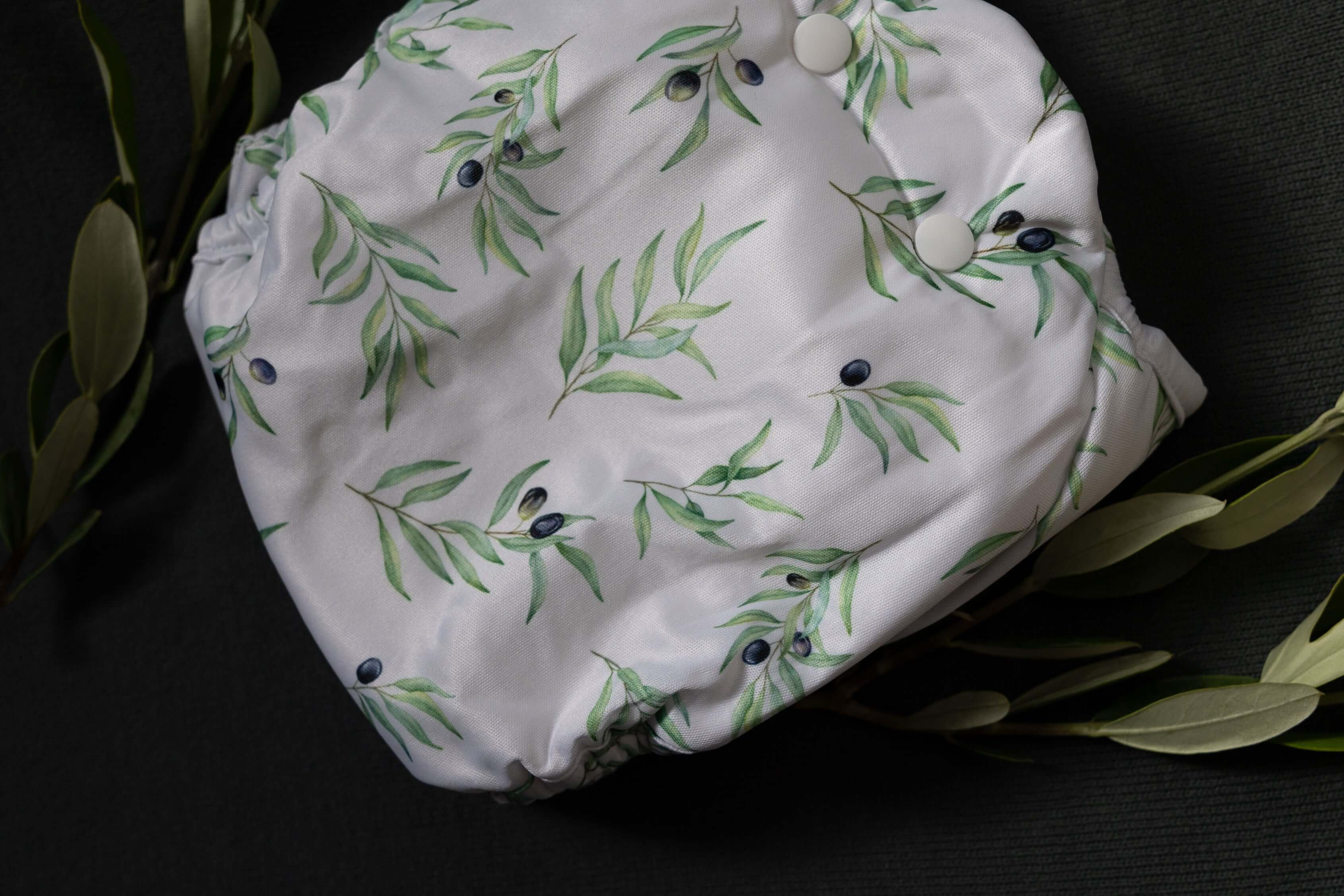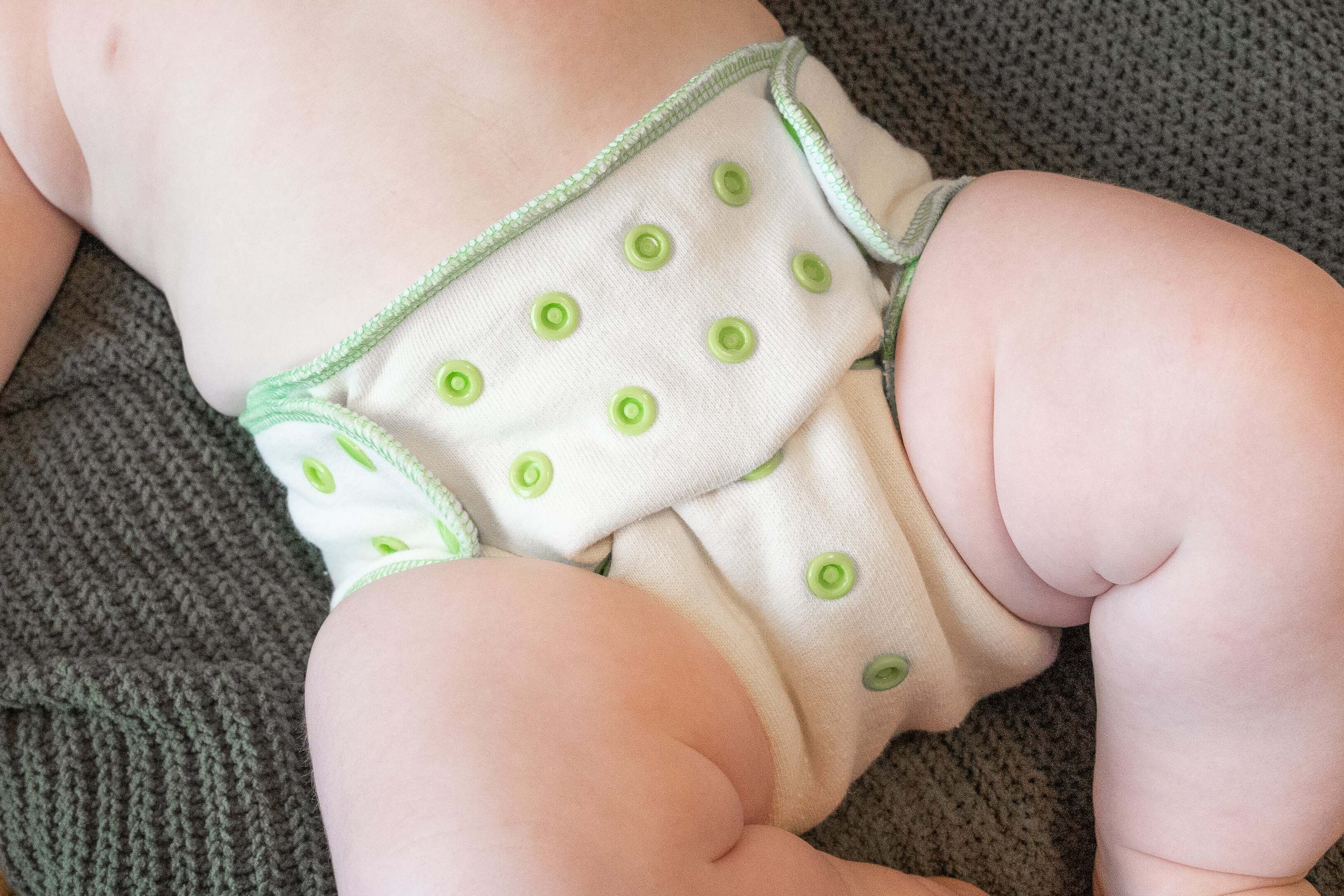
The Ultimate Guide to Cloth Diaper Absorbency: Making the Right Choice for Your Baby
We're passionate about demystifying reusable diapers, promoting evidence based tips, and providing the best for your little ones! If you're on the cloth diapering journey or just starting to consider it, you've probably realized that absorbency is the name of the game.
This blog post is a comprehensive guide for parents exploring cloth diaper absorbency, covering key materials like microfiber, bamboo, bamboo cotton, and hemp. It's crafted to be a single resource for any parent with questions about cloth diaper absorbency
Let's dive into why it's so crucial and explore the ins and outs of different materials. You'll also find tips on connecting with fellow cloth diapering parents. So, buckle up and let's unravel the mystery of cloth diaper absorbency!
Why Is Cloth Diaper Absorbency Critical?
A good cloth diaper fit is essential. Let's face it, nobody's got time for leaks and discomfort, especially not your baby! Cloth diapers need to be absorbent enough to handle whatever your little one throws at them, quite literally. Absorbency impacts not just dryness but also comfort and skin health. It's a balancing act between keeping moisture away from the skin and holding enough liquid to prevent leaks.
Understanding the Fabrics: Microfiber, Bamboo, Bamboo Cotton, and Hemp
Microfiber
What is it? Microfiber is a synthetic material, often made from polyester or polyamide. It's known for its quick absorbency.
Pros:
- Quick to Absorb: Perfect for rapid-fire pee sessions!
- Budget-Friendly: Won't break the bank.
- Lightweight: Easy on the diaper bag.
Cons:
- Less Breathable: Can get a bit stuffy down there.
- Compression Leaks: Beware of the squish factor!
- Can't Touch Baby's Skin: Needs a stay-dry layer on top.
Bamboo
What is it? A natural fiber made from bamboo grass. It's getting quite the buzz in the eco-friendly circles.
Pros:
- Naturally Absorbent: Holds a good amount of liquid.
- Soft and Comfy: Like a cloud for your baby’s bottom.
- Eco-Friendly: A thumbs-up for Mother Earth.
Cons:
- Slower to Dry: Patience is key.
- Higher Cost: A bit more of an investment than microfiber.
- Can Shrink: Handle with care.
Bamboo Cotton
What is it? A blend of bamboo and cotton fibers, combining the best of both worlds.
Pros:
- Balanced Absorbency: Just right, Goldilocks style.
- Softness Plus Durability: Tough but tender.
- Eco-Chic: Stylish and sustainable.
Cons:
- Cost: Slightly more expensive than plain cotton or microfiber.
- Care Needs: Requires a bit of pampering in the wash.
Hemp
What is it? A natural fiber known for its strength and absorbency.
Pros:
- Highly Absorbent: The heavyweight champion of absorbency.
- Eco-Friendly: Hemp is a sustainable superstar.
- Durable: It’s in for the long haul.
Cons:
- Stiff When New: Needs a few washes to soften up.
- Slow to Dry: Test of patience.
- Pricey: Quality comes at a cost.
Connecting with Fellow Cloth Diapering Parents
Cloth diapering's not just about the nappies; it's about the community! Here’s how you can join the party to learn more and for support:
- Local Groups: Check out community centers or baby shops for local gatherings.
- Online Forums: Platforms like BabyCenter or Reddit have buzzing cloth diaper communities.
- Social Media: Follow hashtags like #clothdiapers on Instagram or join Facebook groups.
FAQs
How many cloth diapers do I need?
Depends on your washing frequency. Generally, 20-30 diapers are a good start. Use our Diaper Calculator to find out!
How do I prevent leaks?
Ensure a good fit and choose the right absorbency for your baby's needs.
Can I mix and match different inserts?
Absolutely! Tailor your diaper to your baby’s needs.
Are there any other inserts to consider?
There is one. One to rule them all.
Cloth diapering is a journey, and we at Bayrli are here to guide you every step of the way. Remember, the right absorbency can make all the difference in your cloth diapering experience. Experiment, connect with others, and find what works best for you and your baby. Happy diapering!


